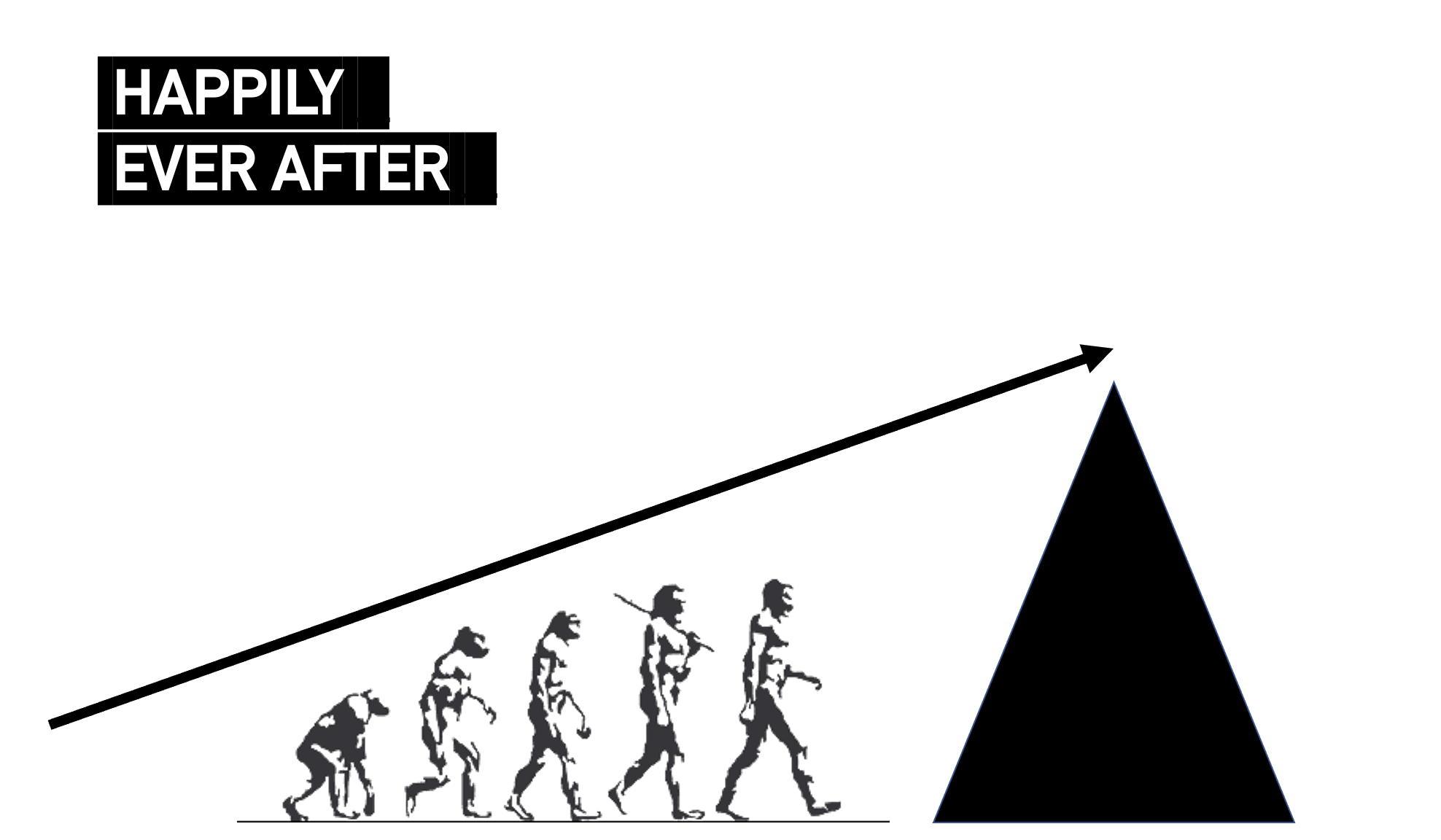Tomorrow’s Fairytale: Invest in Loss
Zallinger’s March of Progress (or The Road to Homo Sapiens), published in 1965 as part of the Time-Life book Early Man, is probably one of the most famous and striking images in the history of scientific illustration that visualizes the evolution of our species. It has become a global icon – and even meme - for evolution, progress and growth. However, unknown to many people is the fact that the illustration also has its critics as it resulted in the understanding of evolution as a linear and progressive process while life is a copiously branching bush, continually pruned by the grim reaper of extinction, not a ladder of predictable progress, as evolutionary biologist Stephen Jay Gould so beautifully said.
Think outside the pyramide
Whether Zallinger’s illustration fits the box of right or wrong, to me it does reflect our inherited perception of a hierarchy in life and a linear story for progress as well as our urge to structure our world by fragments, schedules, subjects and patterns to understand [and control] it. It reveals and underlines our habit to define, translate and see growth and evolution in today’s world in the shape of pyramids or progressive lines. Even when science might prove us wrong along the way. Or, in case of the renowned Maslow’s Hierarchy of Needs Five Stage pyramid, when his work never focused on a strict hierarchy and in fact, he himself didn’t present his theory as a pyramid [!]. Knowing the influence of Maslow’s pyramid within the fields of marketing and psychology, I can’t help but wonder for quite some time now: “What if his theory was presented as a circle instead. Or no shape at all? How might that have influenced our perception on innovation, our behaviour towards success and change, or even how we design our systems for (human) development? Might our hardwired survival programme combined with a step-by-step linear departmentalized (visual) language for progress be the reason why what often begins as an initiative to contribute to society and a fight for equity, automatically reappears as a ‘self’ serving route to sell people more stuff, work harder or conform to policy?”
The upside down world
This brings me to the slogan “Less is More” which is now more than ever part of our conversations regarding sustainability and goes [or should at least go] beyond the twentieth-century love for minimalism. However, are we fully aware of the true meaning behind these three words and what they - combined in this order - should actually require from us? Less is more would mean the upside down world of how we’ve been programmed to evolve, over centuries and en mass, specifically in Western culture. We would need to completely change how we as individuals experience personal growth and define life goals. Or how companies thrive on ROI based on increased market share, sales volume or profit, and countries measure the progress of society by focusing on a financially upward direction of their economy. In short, everything that validates our success and gives our lives and stories direction and meaning nowadays [whether as a country, a business, an individual … ] needs to be altered or perhaps even be erased before we can write, let alone believe in and start living a ‘Less-is-More-fairytale’. Definitely something to think about next time your answer includes Less is More…
What if I fly? Oh, but my darling, what if you fall?
I genuinely believe our next step in evolution is not about learning new things [to change] in today’s world, but more about our ability to unlearn, prune, and hit control-alt-delete. Only then are we able to imagine new paths for change for the creation of a different world. Otherwise, today’s solutions will only be causing bigger problems in the future. We need to start writing Less-is-More scenarios and invest in loss - in the broadest sense of the word, from profit, comfort zone to unlimited access - before it will cost us too much or we are completely hardwired [stuck] in today’s world. And, an important question we need to ask ourselves: [how] are we able to let go of the perceptions, systems, values and definitions that are so pressed into our DNA, mindset, memories, stories and economy, without burning all bridges that define humanity and us as individuals? How do we invest in loss, without losing our mind?
To end with the words of Thanos (Avengers: Endgame, 2019):
“As long as there are those that remember what was, there will always be those, that are unable to accept what can be.”

